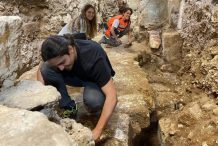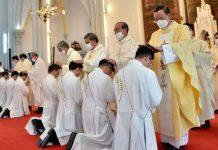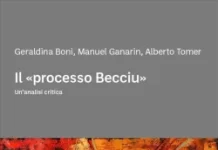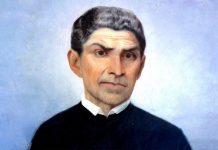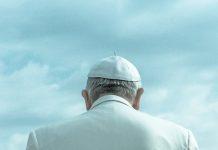France (Monday, January 8, 2018, Gaudium Press) The Vatican announced Dec. 7, in its usual laconic style, that Pope Francis appointed Bishop Michel Aupetit of Nanterre (a small diocese near Paris) to succeed the retiring Cardinal André Vingt-Trois as archbishop of the French capital. A brief biography followed.
What the announcement didn’t say (which is not surprising for official ecclesiastical announcements) is that Paris now has a vigorous new pro-life advocate for its archbishop! His installation is Jan. 6.
Archbishop Aupetit, 66, was something of a “late vocation” (if you only count the priesthood as a vocation): He was ordained at age 44, after a previous vocation as a medical doctor. He practiced medicine from 1979 to 1990 and taught bioethics until 2006. His book, L’Embryon, Quells Enjeux? (The Embryo: What Are the Stakes? Paris: Éditions Salvator, 2008) is a vigorous defense of the unborn child.
Archbishop Aupetit is very much a Renaissance man: As he notes in his book, “We have tried to visit the different domains that concern the debate [over the unborn child]: biology, philosophy, history, law and anthropology, attempting to show that this is a subject of major importance for the future of man and of human civilization.”
And that is exactly what the new Parish archbishop does in his book, addressing the issues at stake in-depth, refuting objections, and pulling no punches when it comes to discussing where current trends are leading.
Discussing embryo experimentation, for example, Archbishop Aupetit observes that pagans in the ancient world literally sacrificed their children on the altars of deities they thought would repay them with benefits like good crops, while today “the living human embryo is sacrificed on the altar of money.” Antiquity had its idols like Baal, but today’s “idols have changed their form: less coarse than in the past, they are called ‘money,’ ‘economic growth,’ ‘vanity,’ ‘celebrity,’ or ‘public renown.’ The victims? They are always the same.”
What is most appealing about Archbishop Aupetit is that, as a medical doctor, he has the scientific background and expertise necessary to engage and respond to the bioethicists ready to bless the next case of embryo experimentation here or euthanasia there. There is still an aura about the white-laboratory-coated “expert” that affords him deference – often undue deference – to conduct experiments or even formulate public policy. Part of that aura stems from his biological or medical knowledge that his audience neither has nor often understands, so they are ready to give him the benefit of the doubt.
The value of Archbishop Aupetit is that he can stand toe-to-toe with them and offer plausible rebuttals, having the same command of biology and medicine as his opponent.
That is already evident in the first chapter of L’Embryon, dedicated to the facts of prenatal biological development. Sure, Jack and Barbara Willke’s 1971 classic, Handbook on Abortion, detailed the physiology and biology of fetal development, while subsequent technology opened a window to the womb so as to show what the Willkeses told. There’s no denying that an unborn child has a heartbeat at around 20 days after conception or brainwaves by 40. Those facts have been known for 50 years.
And for 50 years, Western countries have allowed abortion, with the United States maintaining one of the most liberal abortion regimes on the planet.
The truth is that the plain and simple biology of embryonic and fetal development has been obscured by philosophical agendas. Yes, there are brainwaves, but “we can safely say that a 6-week-old fetus is in no way sentient,” reply critics.
Notice that here the argument has shifted: Biology is disregarded in favor of a redefinition of the person as consciousness. Archbishop Aupetit recognizes this: “The essence of the debate today is anthropological; it goes back to two different visions of man.”
That’s when the archbishop takes his readers on a grand tour of the understanding of man operative in the Judeo-Christian and in the Cartesian-Kantian traditions. The former sees him as being human and thus inherently endowed with rights and dignity; the latter sees him as having his humanity because of certain qualities (like consciousness), so that his rights and dignity are conferred by those qualities or, ultimately, by others’ recognition that he possesses them.
This difference between “being” and “having” has implications for modern bioethics up and down the line, insists Archbishop Aupetit, who uses in vitro fertilization (IVF) to make his point. Proponents of IVF defend it as a way for couples to “have the baby they so desperately want.”
The words pull at the heartstrings, but the archbishop unpacks what they imply.
Archbishop Aupetit’s book was written as France was debating revisions to its “Law on Bioethics,” in part to deal with questions posed by IVF. As the archbishop tells it, French regulations began introducing the idea of a “parental project” already in 1986 to address the use of IVF.
Asking whether a “child is a gift or a project,” Archbishop Aupetit sums up the issue succinctly:
“If a child becomes a ‘project’ it is clear that he ought to correspond to criteria that belong not to his human nature but to his ‘qualities.’ Once we introduce that idea, however, this follows inexorably: ‘If he presents some anomalies in conflict with the parental qualities project, he will be eliminated.’ Put bluntly, ‘the child is no longer a gift; he is an entitlement.'”
And that’s where Archbishop Aupetit’s historical perspective comes into play. In ancient Rome, fathers also had quality-control rights: The patria potestas (power of a father) allowed a father to abandon a child with disabilities in the woods after birth. It also allowed him to abandon a newborn of the “wrong” sex because then, like now, boys were preferred to girls, the latter representing a net economic loss to the family in terms of future dowries.
Archbishop Aupetit suggests that the core of the patria potestas is back today in the notion of a child having to meet the quality-control standards of the “parental project,” with no one to advocate his cause should he be found wanting.
In vitro fertilization already supplements the ancient paternal right by technology: Not only does the parent have the right to decide whether he accepts the child he received, but now he can actually design what he gets.
But the most extreme example is found in embryo freezing. Relentlessly applying logic, Archbishop Aupetit asks that if it is normal for parents to turn their children into “projects,” should it not also be normal for parents to set them free? “But what are we to say when they are not in a state of exercising that [freedom] because their lives are artificially suspended by freezing? Neither the law nor their parents protect them.”
A lot more can be said about the new Paris shepherd’s defense of the unborn, e.g., his explanation of the origin of the term “person,” which, thanks to the Trinitarian and Christological controversies of the fourth and fifth centuries (think of that the next time you say “consubstantial”) was transformed from the ancient Greek meaning of simply a mask in the theater to our understanding of a rational substance.
Archbishop Aupetit’s biology of fetal development also provides solid arguments against those who attribute decisive significance to the origin of the neural streak or implantation rather than conception to define the “beginning” of human life.
The latter is especially relevant regarding the debate over compulsory funding of “contraceptives” under “Obamacare.”
Abortifacient drugs get reclassified as “contraceptives” only because of the decision of the American College of Obstetricians and Gynecologists to call them such until implantation (usually 21 days or so after conception). These “contraceptives” prevent the “conception” of an already independent beating heart!
Archbishop Aupetit also wrote books on sexual ethics (L’Homme, le Sexe et Dieu [Man, Sex and God]), death (La Mort et Apre?s? : Un Pre?tre-Me?decin Te?moigne et Re?pond aux Interrogations [Death and Afterward? A Priest-Doctor Bears Witness and Answers Questions]) and contraception (Contraception: La Re?ponse de l’E?glise [Contraception: The Church’s Response]).
Those books seem to have had limited reach outside France. Based on L’Embryon, that’s a pity.
Hopefully, however, their author will find a new stage at Notre Dame Cathedral to proclaim the gospel of life!
Source National Catholic Register John M. Grondelski Ph.D.



